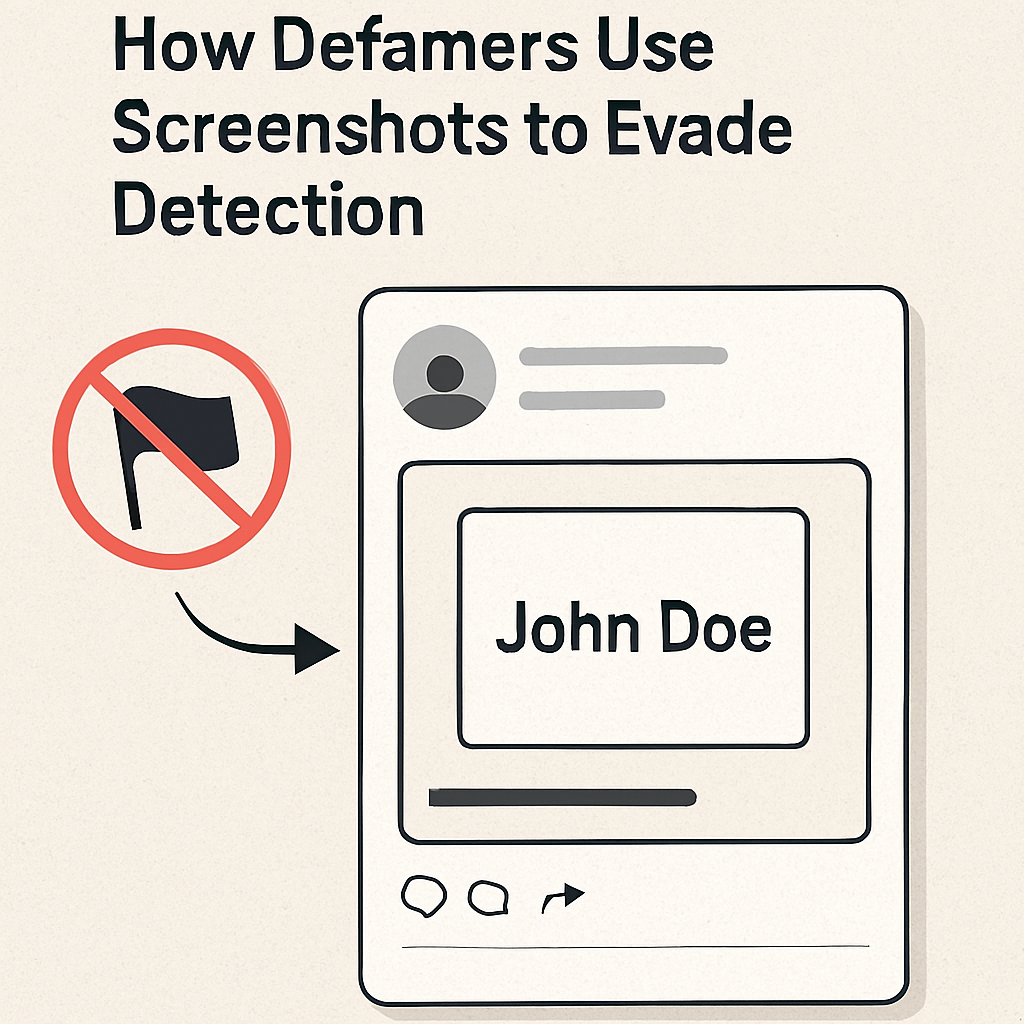🖼️ “Invisible to Moderators: How Defamers Use Screenshots to Evade Detection”
🔍 The Tactic
Defamers have learned to weaponize a loophole in platform moderation: text embedded in images often escapes detection. Instead of writing a target’s name in the tweet or post itself, they embed it inside a screenshot—usually of a message, profile, or fabricated exchange.
This tactic allows them to:
- Avoid triggering automated moderation filters.
- Keep the defamatory content public longer.
- Create plausible deniability (“It’s just a screenshot.”)
🧠 Why It Works
Most platforms rely on text-based scanning to detect harassment, impersonation, or defamation. But image content—especially screenshots—is harder to parse at scale. Unless a user manually reports it and a human moderator reviews it, the post often stays live.
🧪 Common Patterns
- Screenshot of a fake DM with the target’s name and false claims.
- Image of a profile with defamatory captions added.
- Visual quote cards that misattribute statements to the target.
These posts often include hashtags or vague commentary to mask the intent, but the embedded name makes the target easily identifiable.

⚠️ The Harm
This tactic is especially damaging because:
- It circumvents moderation systems.
- It spreads misinformation with visual credibility.
- It’s harder for victims to appeal or get removed.
🛡️ What DefamationTracker Is Doing
We’re documenting these patterns and building tools to:
- Flag image-based defamation.
- Help victims submit structured reports.
- Advocate for platforms to expand detection beyond text.
💬 Final Thought
Defamation doesn’t disappear—it adapts. And when platforms fail to evolve their detection systems, they leave victims exposed to tactics designed to exploit those blind spots.
Views: 1